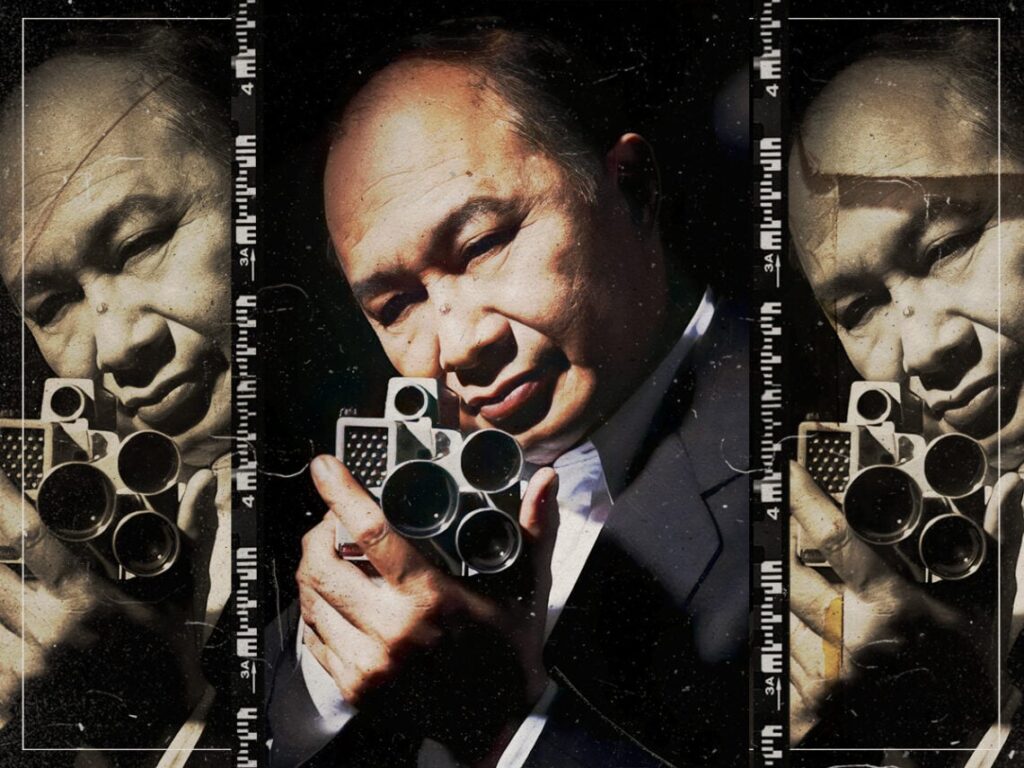How Entering Rock & Roll Hall of Fame Financially Impacts Artists
 Posted On
Posted On
They get a statuette, Wikipedia update and maybe even a legacy boost.
But does being inducted into the Rock and Roll Hall actually help artists financially? Particularly when a performer, while fully deserving of the honor, isn’t currently a stadium-level star?
The Zombies, the English rockers known for haunting songs like 1968’s “Time of the Season,” were inducted into the Rock Hall in 2019 — after their fourth nomination in five years.
“It’s going to give you a bump in activity on streaming and socials,” the band’s manager, Chris Tuthill, tells SPIN, “because people are talking about you and seeing you. But beyond that, it doesn’t automatically flip a switch. It doesn’t mean you’re going to draw more people to a show. It doesn’t mean the promoter’s going to pay you more, that you’re going to suddenly see better (film and TV) syncs. It’s like anything today — you have to keep working it. You have to keep cutting through the clutter.”
That online fan vote the Rock Hall introduced a few years ago doesn’t have much impact on who goes in. For example, neither of the top two 2020 fan-vote getters, jammy Dave Matthews Band and pop-rock belter Pat Benatar, are being inducted this year.
But that online vote keeps fans engaged for weeks, which Tuthill says benefited the Zombies. As did singer/songwriter legend John Prine, saying in a Billboard interview he thought the band should go into the Rock Hall before him.
That buzz built to an appearance on The Tonight Show Starring Jimmy Fallon, while the Zombies were in the U.S. for the Rock Hall ceremony at Brooklyn’s Barclays Center. “Induction probably paved the way for us doing a summer amphitheater tour with Brian Wilson that year, which is something that was always on the Zombies’ bucket list, to do a tour with him,” Tuthill says. “Because he was such an inspiration to them in their early days.”
An amphitheater tour with the Beach Boys maestro is a big step up from where the Zombies were after reuniting in the early 2000s. “They were at that point mainly playing small clubs,” Tuthill says, “because people didn’t really necessarily connect all the dots of who they were. They didn’t necessarily know the depth of their catalog, how much impact they had on several generations of other bands and artists still to this day.”
Those artists included late folk-rock great Tom Petty, alt-rock god Dave Grohl and Bangles jangle-pop goddess Susanna Hoffs, who delivered the Zombies’ induction speech at the 2019 Rock Hall ceremony. The inductees were all from the ‘60s Odyssey and Oracle era: singer Colin Blunstone, singer/keyboardist Rod Argent, guitarist Paul Atkinson, bassist Chris White and drummer Hugh Grundy. (In addition to the Zombies, 2019 inductees included Radiohead, Janet Jackson, Def Leppard, the Cure and Roxy Music.)
In the past, Tuthill worked with other Rock Hall inductees, including soul singer Wilson Pickett, for whom he was tour manager, and bluesman Bo Diddley. Although he started working with Pickett and Diddley after their respective inductions, he notes, “From anecdotal information I’ve had working with them, that was a big impact on their careers.” And he’s absolutely positive a Rock Hall induction was vital for another musician he worked with, Chuck Berry pianist Johnnie Johnson: “Here’s a guy that was completely forgotten, and it was through people like Keith Richards that the world read about him” before Johnson’s 2001 induction in the hall’s “sidemen” category.
The Rock and Roll Hall of Fame’s 2020 inductee class includes synth band Depeche Mode, glam pioneers T. Rex, chardonnay rockers the Doobie Brothers, superstar vocalist Whitney Houston, industrial icons Nine Inch Nails and influential rapper Notorious B.I.G.
Unlike previous years, there will be no live performances or full-on ceremony due to the ongoing pandemic. Instead, the special will consist of lots of archival footage, interviews with artists influenced by the inductees and remotely taped acceptance speeches by surviving artists. (Biggie, Houston and T. Rex frontman Marc Bolan are all deceased.) Myriad special guests set for the HBO broadcast range include Bruce Springsteen, Iggy Pop, Jennifer Hudson, Dave Grohl, Sean Combs, Miley Cyrus, Lin-Manuel Miranda and Alicia Keys.
The Moody Blues, another Brit band known for ‘60s atmospherics, like on Mellotron ballad “Nights in White Satin,” were 2018 Rock Hall inductees. They got in after a long wait, having been eligible for around two decades. (Artists can become nominated and potentially inducted 25 years after their debut commercial recording’s release.)
Maria Brunner, who handled marketing as part of the band’s management team for more than 30 years, credits talent agency CAA’s behind-the-scenes lobbying with finally getting the band inducted.
Brunner says after Moody Blues were inducted into the Rock Hall, their merch and physical music sales “zoomed.” Curiously, the band then decided to retire instead of really cashing in. “They didn’t tour,” Brunner says. “And that’s the biggest income for classic rock groups like that. If anybody had said they would not go ahead and take advantage of that I’d say, ‘You’re crazy.’ But honestly, they put a lot of thought into that and it was time.” Other acts Brunner works with include banjo virtuoso Bela Fleck and “Bad to the Bone” blues-rocker George Thorogood.
Although the Moody Blues brand is garaged, singer/guitarist Justin Hayward and singer/bassist John Lodge have since mounted solo tours. “Those solo tours do very well,” Brunner says, “and I think having the Rock Hall to be a part of their moniker is very helpful.”
Not every team behind a Rock & Roll Hall of Fame inductee is eager to sing the hall’s praises. Reps for a pair of pioneering female rock acts, a beloved power-pop band and hit-making guitarist each declined to be interviewed for this story.
Joel Peresman, president and CEO of Rock & Roll Hall of Fame Foundation, says the Hall doesn’t track the financial impact an inductee may or may not see. “We hope that they do,” Peresman says. “It’s not obviously why we induct them. But one of the goals is to really call attention to people, to show how important and influential this inductee is. It’s easy sometimes when you have a Bruce Springsteen or Bon Jovi, a well-known artist. But when you have a Nina Simone or Zombies that might not be as familiar to a lot of people, it’s great when you hear about or see people are playing their music or starting to get into it.”
Others on the Rock Hall Foundation board include execs from major record labels, publishing, managers and agents. The foundation manages the induction process, including overseeing the nominating committee, coordinating voting and doing media deals, like the one with HBO. The foundation’s primary function is to support the Rock Hall’s museum in Cleveland, raising money for various museum projects, including a third-floor redesign and new theater. The foundation also executive produces HBO’s broadcasts of Rock Hall ceremonies and this year’s special.
Peresman emphasizes “influence and importance of the artist” are the criteria for induction. So while T. Rex only really had one hit in the U.S., 1971 glitter-boogie “Bang a Gong,” the band (and particularly Bolan) casts a long shadow over many famous musicians, from David Bowie to Joan Jett to Slash.
The Rock Hall’s nominating committee decides which members from an inducted band with multiple lineups become enshrined. There have been some questionable decisions thereof. For example, only the original ‘70s lineup from anthemic rockers KISS were inducted in 2014, while musicians who’d been in the group’s less heralded but hit-making ‘80s lineups were excluded. In contrast, with alt-funk-punks Red Hot Chili Peppers, a latter day member who wasn’t part of that group’s golden era was included in the Peppers’ 2012 induction. “It’s not a perfect science. Ever,” Peresman says. “And a lot of it’s a bit subjective. But we try to do the best we can with a bunch of smart people who know the music and the artist.”
Earlier this year, more than a few eyebrows were raised after Nine Inch Nails frontman Trent Reznor was initially the only NIN musician listed as an inductee. That changed by September. Current and former band members including drummer Chris Vrenna, programmer Atticus Ross, guitarist Robin Finck, percussionist Ilan Rubin and multi-instrumentalist Alessandro Cortini are now being inducted with Reznor. I ask Vrenna if he thinks being part of NIN’s induction will benefit him financially in any way.
“I can’t speak for any other musician who’s ever gotten inducted,” Vrenna says, “but I personally don’t see this honor as a money-making opportunity. Getting into the Rock & Roll Hall of Fame is a huge honor, and I really just enjoyed as such.”





